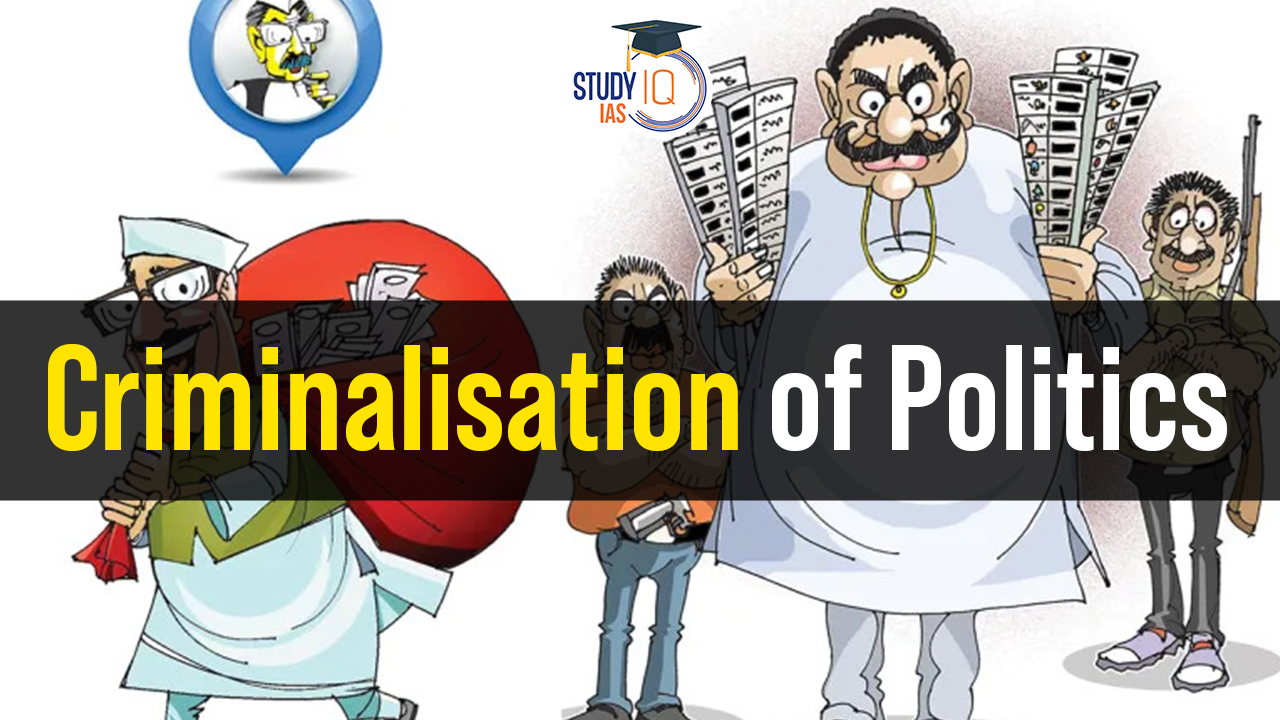Table of Contents
Context: An amicus curiae report to the Supreme Court stressed the critical need for voter access to information about the criminal backgrounds of candidates. This access is viewed as an extension of the fundamental right to free speech and expression, underscoring the electorate’s right to be informed about who they are electing.
What is Criminalisation of Politics?
Criminal Antecedents of Candidates
The report drew on data from the Association of Democratic Reforms (ADR) regarding the criminal backgrounds of candidates in the initial phases of the 2024 Lok Sabha elections:
- Phase I and II: Out of 2,810 candidates, 501 (18%) have criminal cases, with 327 (12%) facing serious charges (punishable by five years or more in prison).
- Comparison with 2019 Election: In the 17th Lok Sabha elections, 1,500 out of 7,928 candidates (19%) had criminal cases, with 1,070 (13%) involving serious charges.
- Interestingly, 225 of the 514 elected members (44%) had criminal records, indicating that candidates with criminal backgrounds won more seats than those without.
Current Status of Criminal Cases Against Lawmakers
- Pending Cases: As of January 1, 2024, there were 4,472 criminal cases pending against lawmakers. The year 2023 saw 1,746 new cases, while 2,018 cases were resolved.
- Long-standing Cases: Out of 5,175 cases pending (as of November 2022), 2,116 (40%) had been unresolved for more than five years.
Proposed Reforms For Criminalisation of Politics
- Website Improvements: State High Courts should feature a dedicated tab on their homepages with detailed, district-wise information on criminal trials against legislators, including updates on individual trial progress and reasons for delays.
- National Judicial Data Grid: The creation of a model website similar to the National Judicial Data Grid to provide real-time updates on cases against MPs and MLAs.
- Also it was proposed that the Supreme Court establish a committee led by a sitting judge to implement this.


 UDAN Scheme, Objectives, Funding and Ach...
UDAN Scheme, Objectives, Funding and Ach...
 Indus Water Treaty 1960 Suspended by Ind...
Indus Water Treaty 1960 Suspended by Ind...
 5 Years of SVAMITVA Scheme and Its Benef...
5 Years of SVAMITVA Scheme and Its Benef...





















